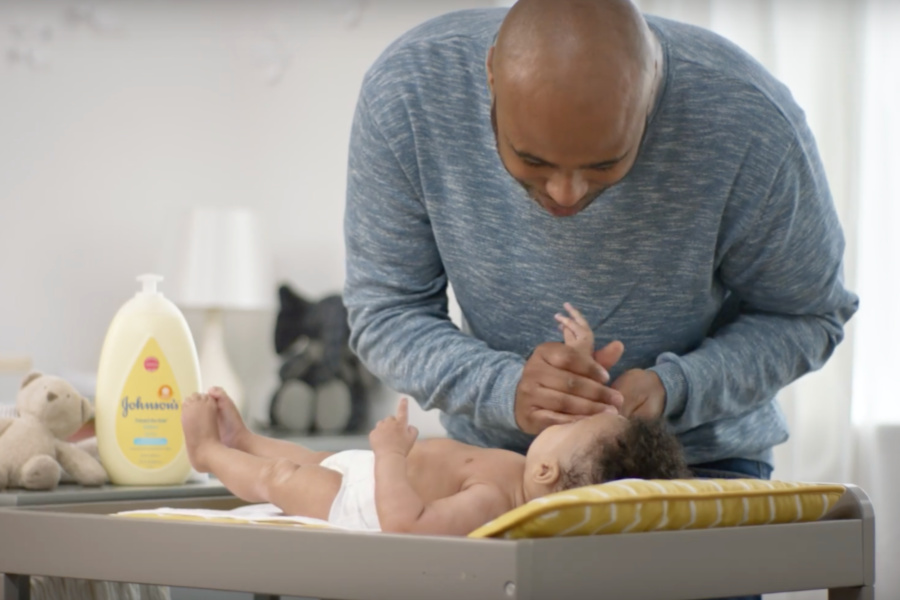Babies and sleep may be the one issue that strikes the most fear in the hearts of new parents. But when you think about it, a bedtime routine is actually one of the most lovely, beautiful bonding experiences between babies, parents, and all caregivers.
There’s even actual science behind the routine: what to do each night, why we do it, and how it helps, both in the short term and long term.
Here are a few things that we know from tons of research. And honestly, from our own experiences as new parents.
While our partner Johnson’s happens to be a leader in infant care research — so much so that other brands use their research to inform their own product formulations too — it’s great to know that so many trusted resources come to similar conclusions about infant sleep and sleep routines, so we’re sharing them here for you.
After all, new parents can use all the reassurance we can get.
Note: Before we agreed to partner with Johnson’s on this series, we did our own research about their growth and evolution in terms of ingredients, practice, and transparency. As parents ourselves, we are incredibly conscientious about the brands we work with and we felt good about what we learned.
We are firm believers in supporting brands who listen to customer feedback, respect new scientific data as it emerges, and show a genuine commitment to safety and transparency.
Therefore, we present the following post on behalf of Johnson’s®.
Establishing a nighttime routine is important. That doesn’t mean it will be the same every single night.
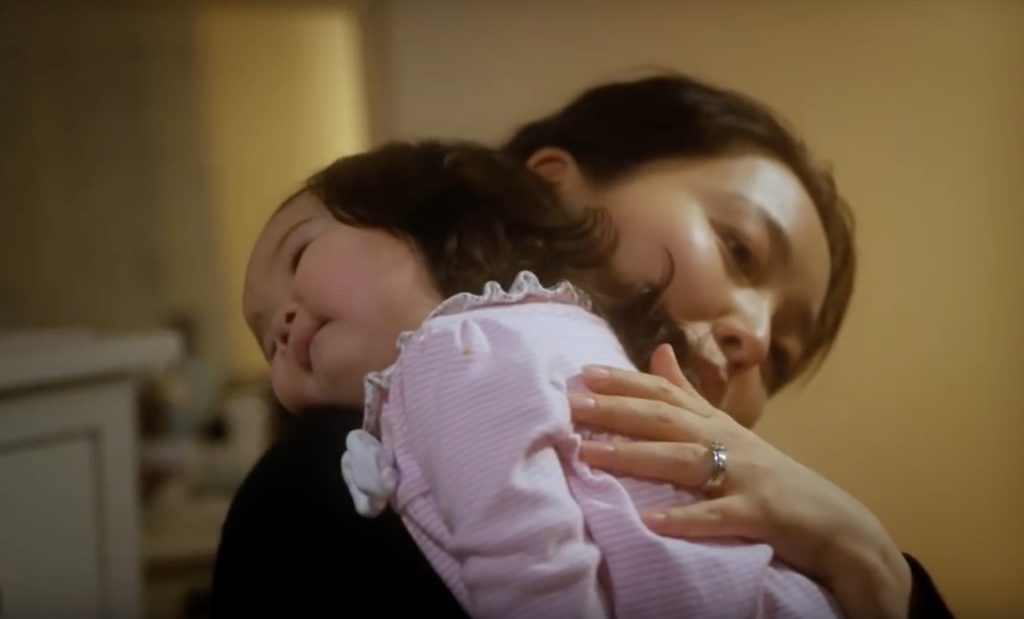
Baby sleep habits change as they grow. Hey, they change day to day. (As we all know around here.) Sometimes babies will sleep a lot, sometimes less than you might hope. No need to panic if your baby sleeps five hours straight one night, then only sleeps two hours at a time the next.
So let’s start off understanding that establishing a routine does not mean getting your baby to sleep on the same schedule for the same amount of time. That won’t happen for a while. It’s about the routine itself having benefits in the long term — not about any immediate outcomes.
The AAP website states that establishing and maintaining healthy routines for your baby is important, from meals to physical activity, and of course, bedtime.
However we were surprised to read that in their research, that parents are “averse to the word ‘schedule'” and that overall, a lot of parents aren’t making the link between routines and a healthy start of life for babies. We’re less surprised to learn that parents find establishing routines pretty challenging, because of how demanding the newborn and infant stage can be. That’s true.
So, do your best.
Even if things are erratic at first, the AAP suggests getting down a solid bedtime and sleep routine strategy by 2-4 months. By 6 months, you can expect your baby to start to have a more regular sleep cycle.
A warm bath is a great start to a bedtime routine.
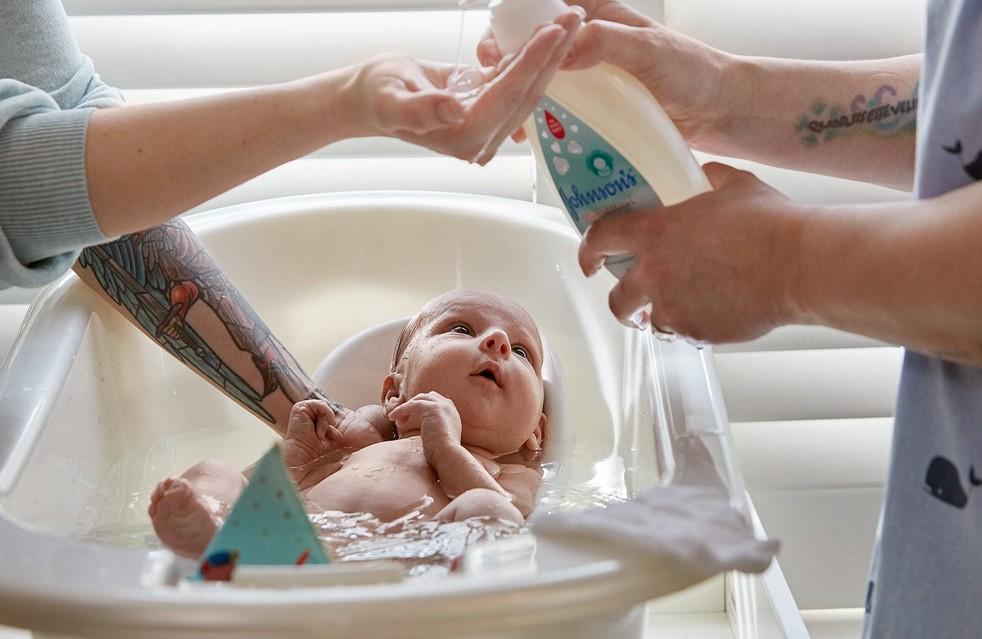
This is Johnson’s first of three steps in their baby bedtime routine, and it’s backed up by science like everything else they recommend. Good news for frazzled parents though: doctors will tell you that you really don’t need to bathe your baby every day.
It will be a few years before your baby is running around at gym class, working up a sweat, right?
The AAP’s Healthy Child website offers clear guidelines for bath time, like running warm, not hot water; using mild soaps; and washing the baby’s hair 2-3 times a week at most with a mild shampoo or body wash.
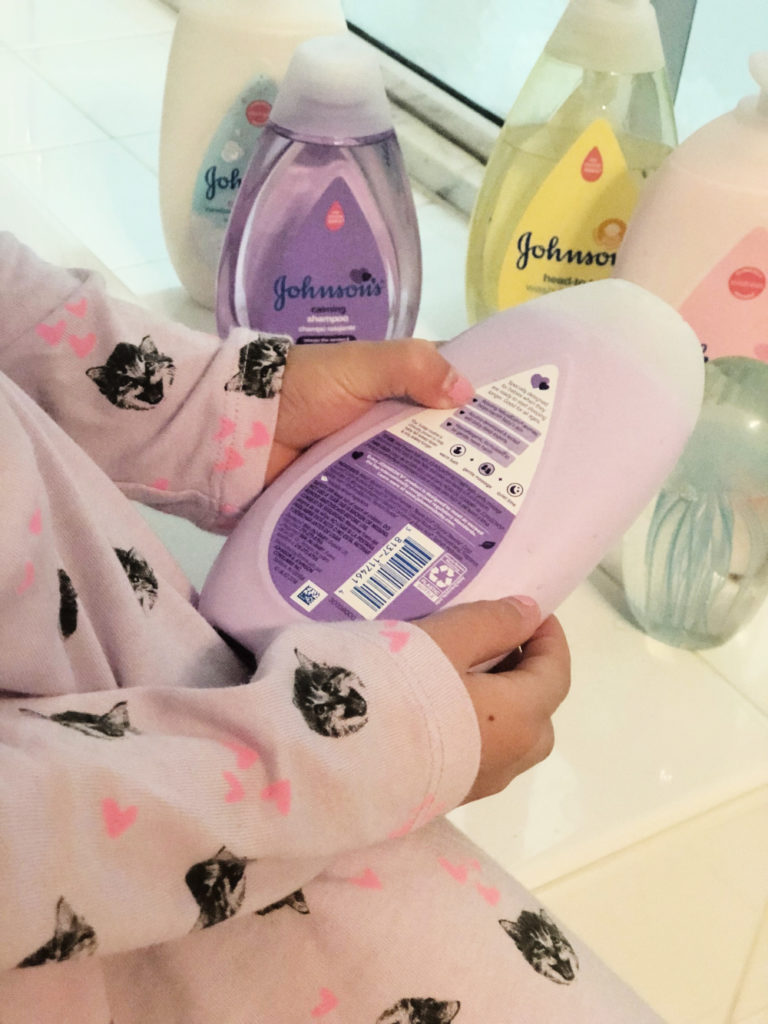
Johnson’s Bedtime Bath is of course mild, as well as pediatrician and dermatologist-tested, hypoallergenic, and free of parabens, phthalates, sulfates and dyes.
Newborns rely on their sense of smell more than any other sense, and published clinical studies over the past 15 years demonstrate that products with a light scent provide benefits to babies like increasing relaxation and helping to enhance sleep.
In fact, bathing infants with fragranced bath products has been proven to reduce infant stress and crying before sleep by 23.7%, and increase by nearly 33% the time spent in deep sleep, when compared with unscented bath products.
However Johnson’s offers both safe, scented bath products as well as unscented bath products, so you can pick what’s right for you and right for your baby and even look up ingredients by scent, fragrance type, or product.
Nighttime baby massage can be more impactful than you know.
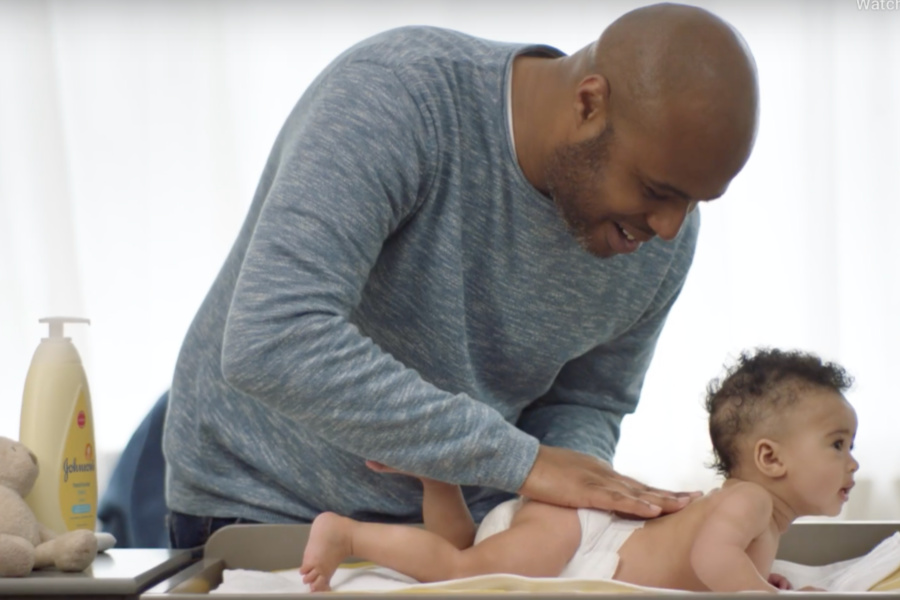
Routine touch and massage as part of a bedtime routine improves sleep quality and even the quantity of time that a baby sleeps. You might have figured that massage encourages positive physical interaction between you and your baby, but scientifically, there’s more to it than that.
The Mayo Clinic explains that massage helps babies relax and sleep, reduces crying, and positively impacts infant hormones that control stress. They also offer some tips for preparing the room, and what kind of touch to use.
Research in Early Child Development and Care shows that 15 minutes of massage before bedtime for one month, can help babies experiencing sleep onset problems to fall asleep sooner.
And the NIH offers research that a pre-bedtime massage helps newborns receive a strong nighttime cue to adjust to a better sleep-wake cycle by 8 weeks. The same babies also produced more melatonin, a natural sleep regulator, by 12 weeks.
Even more studies have touched on benefits of infant massage including aiding digestion; helping to relieve colic, gas and constipation; relieving nasal congestion; easing teething discomfort; helping to develop good muscle tone, coordination, and suppleness. Plus, it boosts your own confidence as a parent.
So…lots of good reasons to get comfortable incorporating baby massage into your bedtime routine!
Wondering how to do it? For excellent tips on how to massage your baby, Johnson’s offers lots of specific tips and tricks including a helpful video about baby massage.
Quiet time is important time
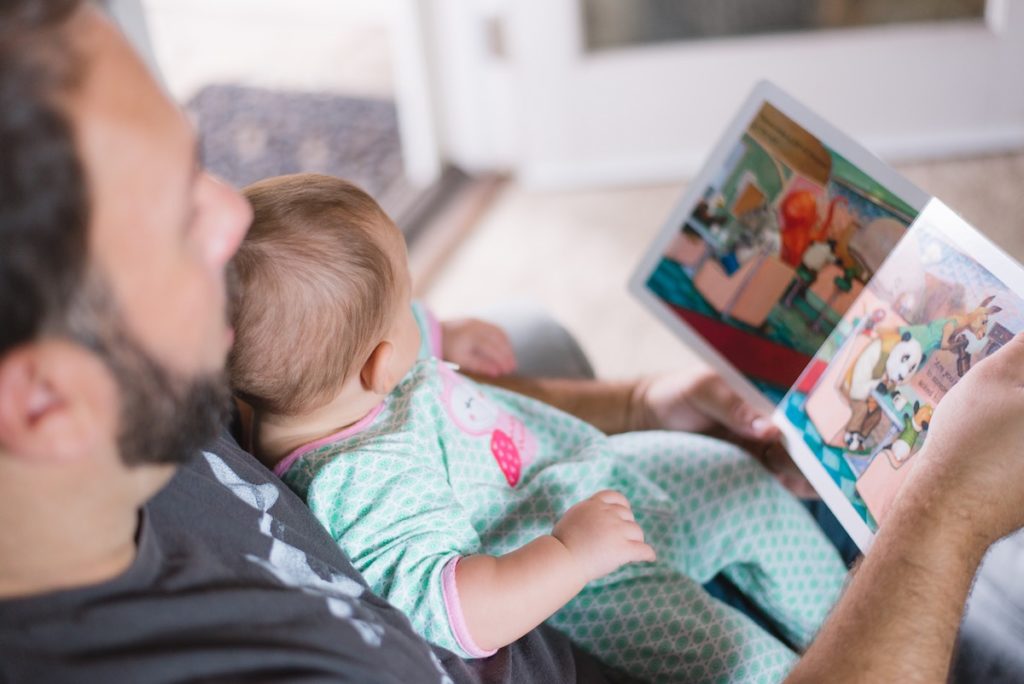
If you ever tried to watch some scary movie or exercise right before bed, you know that it’s not the most conducive to getting you to sleep. Same goes for babies. (Not that they’re watching scary movies.)
The AAP reminds us that establishing a quiet time routine before bed is really helpful for parents. They write that it helps your child associate this time with bed so they can start getting sleepy. (We hope.)
Use the time to make up a bedtime story, read a favorite children’s book, or listen to quiet music — nothing energetic. No active playing. No dancing. No tickling.
Johnson’s even learned through research that certain sounds and rhythms can be effective during quiet time — in other words, there’s a science behind lullabies too.
They even created the first “global lullaby,” with composers putting together sounds shared from parents around the world. Cool video. (And you can download the song, too, as part of the free Johnson’s Bedtime app.)

Thanks to our partner Johnson’s for putting out so much information and research to help make parents’ lives easier.
All information is accurate to the best of our knowledge, but please consult your physican for specific questions about infant health
